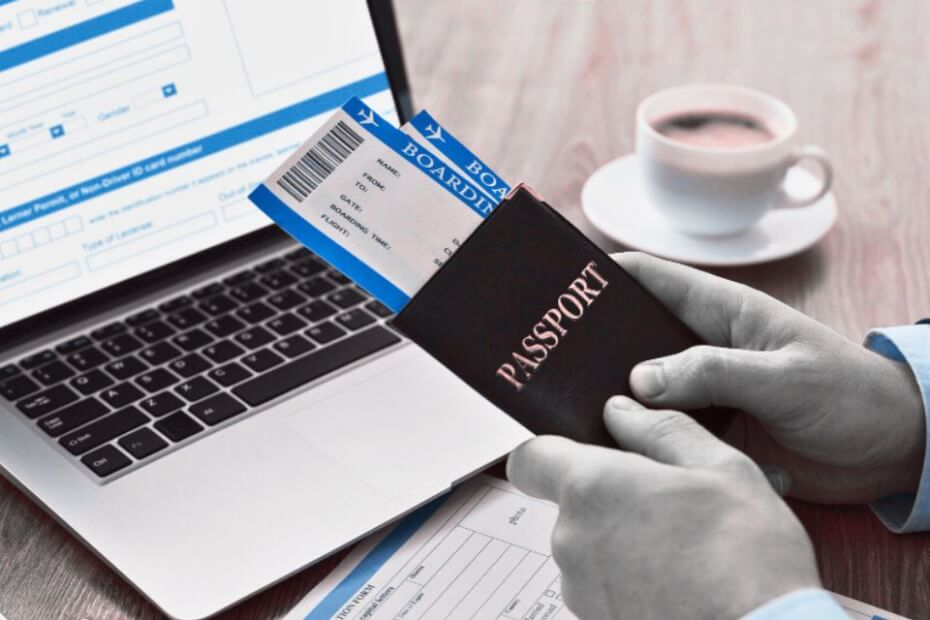
A network of visa scams has stolen tens of thousands of pounds from people hoping to study and work in the United Kingdom (UK).
According to a BBC report, the criminal network agents present themselves as legitimate recruiters of international students and healthcare workers.
They often use convincing websites and job listings, sometimes even setting up fake job interviews to appear legitimate.
These illegal visa network scams have particularly targeted international students from China and India wanting to work in high-demand sectors like healthcare.
Victims have been promised job placements, visas, and Certificates of Sponsorships, which should have been free.
They have paid large sums of money, depleting their savings, only to realize they have been deceived.
However, they end up with fake documents and significant financial losses, leaving their dreams of a future in the UK in ruins.
In a single recruitment network, about 140 hopeful individuals paid at least £10,000 up to £20,000 each, allowing the visa scam to profit nearly £1.2 million.
The visa scams exploit people’s unfamiliarity with the UK’s immigration system, leaving many in debt and without legal recourse.
UK authorities have issued warnings, urging international students to verify any visa or job offer before making payments.
Tightening student visa rules to combat visa scams
The UK government has taken action to tackle these scams by tightening immigration rules and increasing scrutiny of visa applications.
Beginning January 2024, only select international students can bring family to curb visa system abuse in the UK.
Students hoping to switch to a work visa can only do so after completing their course and must meet strict eligibility work visa criteria.
The UK has also introduced stricter guidelines for universities using recruitment agents.
This includes a mandatory registration system for international recruitment agents and subagents.
Recruitment agencies can lose their license if the overseas students they recruit fail UK visa checks or fail to enroll or finish their course.
Universities must also disclose spending on recruitment agents and the number of international students enrolled through them.
These stricter student visa rules align with the Migration Advisory Committee’s (MAC’s) recommendations after a review of the UK’s Graduate visa.
The UK is also implementing stricter compliance standards for institutions recruiting overseas students.
International students must prove their ability to support themselves by meeting an increased financial maintenance requirement.
By January 2025, the new income requirement for students living in London will be £1,483 per month.
The new income requirement for students outside of London will be £1,136 per month.
These stricter visa and recruitment rules ensure that individuals come to the UK for quality education, not as a backdoor to working in the country.
Changes to health and care workers’ visa rules

Due to the UK’s high demand for health and care workers, the healthcare sector has been a key target for illegal visa scams.
Many hopefuls from abroad have been promised quick and easy access to jobs in hospitals or care homes, only to be exploited and abused.
The UK government has raised the general salary threshold for skilled workers and introduced a new Immigration Salary List.
These new rules impact health and care workers who could have previously qualified for the visa with a lower income requirement.
Health and care workers can no longer bring their families to the UK.
Care instructions must also be registered with the Care Quality Commission before they can hire international workers.
Another major step to combat visa scams is stricter regulations for companies offering visa sponsorships.
This includes more rigorous checks to ensure that companies offering employment are legitimate.
The Home Office has also been increasing inspections and imposing harsher penalties on businesses that violate visa rules.
These new rules and crackdown operations help enforce the work visa rules and protect workers from exploitation.
The downside of stricter immigration and visa rules
While these measures have made it harder for scammers, they have also created challenges for legitimate applicants.
The application process is now more time-consuming, with additional checks and higher demands for documentation.
Despite these hurdles, studying and working in healthcare in the UK remain highly sought after by international students and workers.
Illegal visa scammers are well aware of this, which is why they continue to take advantage of many hoping to come to the UK to study or work.
Critics of these new and more stringent policies worry that they will make international students and workers more susceptible to visa scams.
The more complicated rules and processes may push individuals to seek help from unauthorized agents to avoid the red tape.
Protection from UK visa scams

International students and healthcare workers can protect themselves from falling victim to these scams.
Immigration experts urge that students always verify job offers and visa sponsors through official channels like UK Visas and Immigration (UKVI).
Below are some tips:
They must ensure the job offer is from a legitimate company by checking with UKVI or the official company website.
Be wary of large upfront payments without proper documentation. Legitimate visa sponsors or recruiters should not ask for this.
Only deal with recruitment agencies registered with the UK Government or recognized by universities.
Students concerned about an offer should seek assistance from their university’s immigration, visa, and career guidance services.
Those who suspect that a scam has targeted them must report it to UK authorities immediately.
This will help prevent others from falling victim to the same fraudulent schemes.
The rise in visa scams reflects international students’ and workers’ ongoing challenges in securing legitimate study opportunities and work in the UK.
With stricter immigration rules and more sophisticated scammers, people must stay informed and vigilant to protect themselves from fraud.

